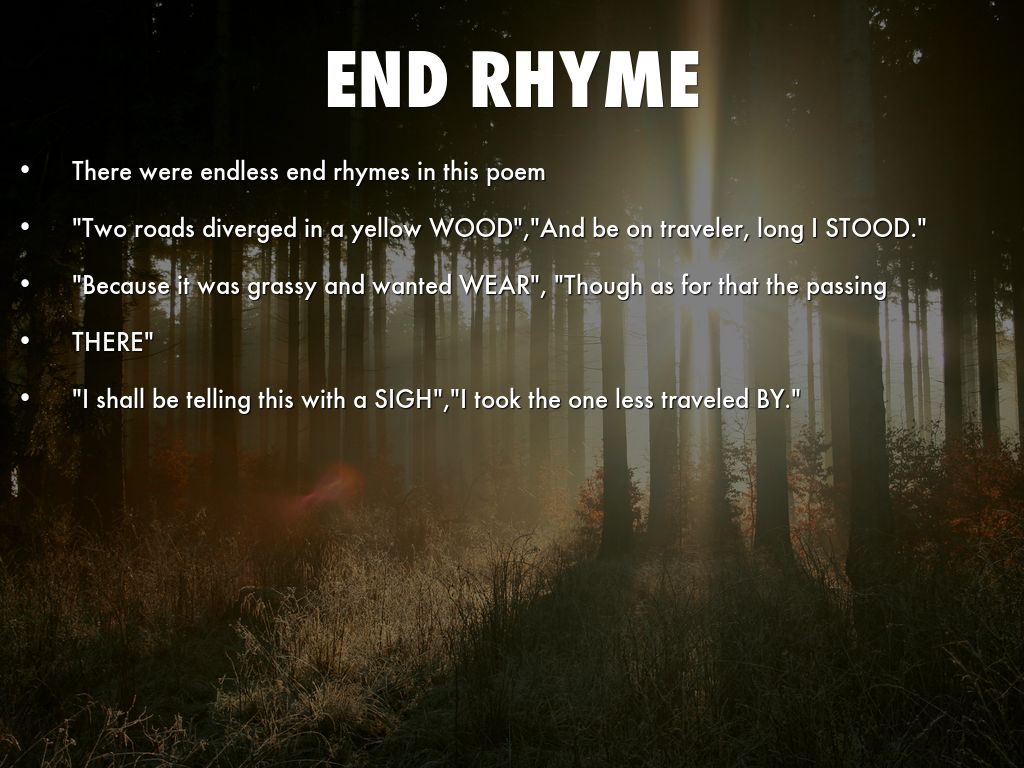

Just as we cannot change the past and the choices that we have moved beyond, it is the unknown impact they have of how we diverge into who we will be in relation to where we began that is behind, “The Road Not Taken”. The single word choice of ‘diverged alludes to the impact of each decision, no matter how insignificant they may appear. The use in the description of the fork in the road as a metaphor that describes how our choice of path, the right or the left, on the road ahead will help determine our destination. a main one and go in different directions or to develop in different directions. In the Miriam-Webster Dictionary it is defined (and I am slightly paraphrasing) as Diverged: (of a road, route or line) to separate from another route esp.

Because a poem will say exactly what the poet meant for the poem to say I looked up the definition of ‘diverged’ using Google. By using the past tense point of view Frost allows the traveler a certain amount of leeway in which he can use hindsight to help him as he recalls the walk.Īs a compliment to the title of the poem Frosts’ beginning, the first words, in the first line, of the first stanza, “Two roads diverged (1)”, present us with the idea the rest of the poem is written around. The “The Road Not Taken” was written using a first person narrator identified as “the traveler,” (3) to recall a fork in the path as he walked along a road in the woods. Frost when he warned that “you have to be careful of that one it’s a tricky poem – very tricky”. Yes, I admit that I am in agreement with Mr. The average reader not having this information could find themselves among the many who have misread the poem’s intent. It was in the mention of “The Road Not Taken” in a poem about choosing one path over another that Frost pokes at his friend Edwards indecisive nature. It was through these sources that I found the information explaining the title of the poem, “The Road Not Taken”. In a third article published in the New York Times Review, “All the Difference” Frost is quoted saying, “Whichever way they go, they’re sure to miss something good on the other path”. Frost was quoted saying “He was a person who, whichever road he went, would be sorry he didn’t go the other.” Edwards’ seemed to constantly question himself with the question of regret asking ‘what if’ in regard to the path he had not traveled. It was at the end of these walks Edwards would often express regret for whichever choice they made. As a walk in the woods often will, the two men would come upon a fork and had to choose which way to proceed. The two men had often taken walks together in the woods near Frost’s home. It was meant to be a jest toward his friend and fellow poet Thomas Edwards, for both the poem written by Edwards entitled “The Road” and because his friend had an indecisive nature. I discovered the purpose of writing “The Road Not Taken” was more or less for humor and out of friendship. The way that our destination is reached is a direct result of the choices we make.Īlways wanting to know if I share the views of the masses I researched the piece of poetry to learn some of the personal facts behind Robert Frost and his intentions when writing the poem. As we travel the path of our individual roads we often must make one choice over another. The poem addresses one main subject throughout: the choice between the two paths.

What was Frost trying to convey as he wrote the piece? I’m reminded of the theory that often the most obvious answer is the most overlooked, and apply it here. It is referred to as the most misread and misunderstood poem of our time. “The Road Not Taken” by Robert Frost is, by his own words described as a very tricky piece of poetry to interpret.


 0 kommentar(er)
0 kommentar(er)
